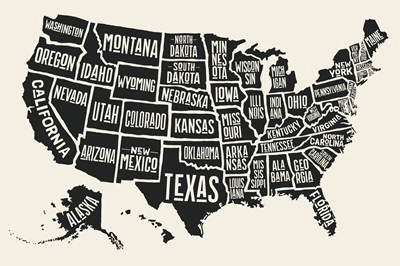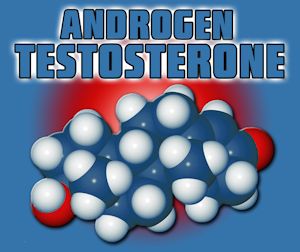Introduction
Mental health is a critical component of overall well-being, yet it remains shrouded in stigma, particularly among American men. This article delves into the qualitative study titled "The Impact of Mental Health Stigma on Help-Seeking Behaviors in American Men: A Qualitative Study of Perceptions and Attitudes," which explores how societal stigma influences men's willingness to seek mental health support. By understanding these dynamics, we can better address and mitigate the barriers that prevent men from accessing the care they need.
The Prevalence of Mental Health Stigma Among American Men
Mental health stigma is pervasive in American society, and it disproportionately affects men. According to the study, many men perceive mental health issues as a sign of weakness, which can lead to reluctance in seeking professional help. This perception is often reinforced by societal norms that emphasize stoicism and self-reliance. The study found that phrases such as "man up" and "tough it out" are commonly cited as deterrents to seeking mental health support.
Perceptions and Attitudes Toward Mental Health
The qualitative data revealed a spectrum of attitudes among American men regarding mental health. Some participants expressed a deep-seated fear of being labeled as "crazy" or "weak," which significantly impacted their willingness to discuss their mental health struggles openly. Others acknowledged the importance of mental health but felt constrained by the fear of social repercussions, such as losing respect from peers or jeopardizing their careers.
The Role of Masculinity in Mental Health Stigma
Masculinity plays a pivotal role in perpetuating mental health stigma among American men. The study highlighted how traditional masculine ideals, which prioritize emotional restraint and physical strength, can exacerbate feelings of shame and inadequacy when men experience mental health issues. This internal conflict often results in men choosing to suffer in silence rather than seeking help, as they fear deviating from societal expectations of what it means to be a "real man."
Barriers to Help-Seeking Behaviors
Several barriers to help-seeking behaviors were identified in the study. One significant barrier is the lack of awareness about available mental health resources. Many men reported not knowing where to turn for help or being unsure about the confidentiality of mental health services. Additionally, the fear of being stigmatized by healthcare providers themselves was a concern for some participants, who worried that their mental health issues would be dismissed or not taken seriously.
Strategies to Overcome Stigma and Encourage Help-Seeking
To combat the pervasive stigma surrounding mental health, the study suggests several strategies. First, increasing public awareness and education about mental health can help normalize these issues and reduce associated shame. Second, promoting positive role models who openly discuss their mental health struggles can challenge traditional notions of masculinity and encourage men to seek help. Finally, improving access to confidential and supportive mental health services can alleviate fears about privacy and judgment.
Conclusion
The qualitative study on the impact of mental health stigma on American men's help-seeking behaviors sheds light on a critical public health issue. By understanding the deep-rooted perceptions and attitudes that deter men from seeking help, we can develop targeted interventions to break down these barriers. It is imperative that society works together to foster an environment where mental health is openly discussed and treated with the same urgency as physical health. Only then can we hope to see a significant reduction in the stigma that silences so many American men.
Contact Us Today For A Free Consultation

- Erectile Dysfunction in American Men: Causes, Diagnosis, and Comprehensive Treatment Options [Last Updated On: March 6th, 2025] [Originally Added On: March 6th, 2025]
- Supplements for Men's Health: Fitness, Heart, Mental, and Prostate Support [Last Updated On: March 17th, 2025] [Originally Added On: March 17th, 2025]
- Sleep Apnea in American Men: Risks, Symptoms, and Effective Management Strategies [Last Updated On: March 18th, 2025] [Originally Added On: March 18th, 2025]
- Exploring Key Fitness Trends Enhancing American Men's Health and Well-being [Last Updated On: March 18th, 2025] [Originally Added On: March 18th, 2025]
- Osteoporosis in Men: Prevention Through Nutrition, Exercise, and Lifestyle Management [Last Updated On: March 19th, 2025] [Originally Added On: March 19th, 2025]
- Gut Health's Impact on Men's Wellness: Digestion, Mental Health, and Heart Disease [Last Updated On: March 19th, 2025] [Originally Added On: March 19th, 2025]
- Stress and Heart Health: A Comprehensive Guide for American Men [Last Updated On: March 20th, 2025] [Originally Added On: March 20th, 2025]
- Breaking Mental Health Stigma: Strategies for American Men to Prioritize Well-being [Last Updated On: March 21st, 2025] [Originally Added On: March 21st, 2025]
- Hydration's Critical Role in Men's Health: Performance, Kidney, and Cognitive Benefits [Last Updated On: March 21st, 2025] [Originally Added On: March 21st, 2025]
- Male Infertility: Causes, Diagnosis, Treatments, and Lifestyle Solutions for American Men [Last Updated On: March 21st, 2025] [Originally Added On: March 21st, 2025]
- Meditation: A Key to Enhancing Men's Mental Health and Well-being in the U.S. [Last Updated On: March 22nd, 2025] [Originally Added On: March 22nd, 2025]
- Alcohol Consumption and Liver Health: Impacts on American Males [Last Updated On: March 22nd, 2025] [Originally Added On: March 22nd, 2025]
- Effective Strategies for American Men to Quit Smoking and Improve Health [Last Updated On: March 22nd, 2025] [Originally Added On: March 22nd, 2025]
- High Cholesterol in American Men: Risks, Management, and Heart Health Strategies [Last Updated On: March 23rd, 2025] [Originally Added On: March 23rd, 2025]
- Exercise Reduces Cancer Risk in American Men: Colon, Prostate, Lung [Last Updated On: March 23rd, 2025] [Originally Added On: March 23rd, 2025]
- Exercise and Diabetes Management: A Vital Guide for American Men's Health [Last Updated On: March 23rd, 2025] [Originally Added On: March 23rd, 2025]
- Mental Health Days: Essential for American Men's Well-being and Balance [Last Updated On: March 24th, 2025] [Originally Added On: March 24th, 2025]
- Dietary Fiber: Essential for Men's Digestive, Weight, and Prostate Health [Last Updated On: March 24th, 2025] [Originally Added On: March 24th, 2025]
- Sleep's Crucial Role in Weight Management for American Men [Last Updated On: March 24th, 2025] [Originally Added On: March 24th, 2025]
- Hemorrhoids in American Men: Causes, Symptoms, Treatment, and Prevention Strategies [Last Updated On: March 24th, 2025] [Originally Added On: March 24th, 2025]
- Work-Life Balance: Its Profound Impact on American Men's Health and Well-being [Last Updated On: March 24th, 2025] [Originally Added On: March 24th, 2025]
- Promoting Men's Mental Health: The Vital Role of Regular Screenings [Last Updated On: March 24th, 2025] [Originally Added On: March 24th, 2025]
- Managing Allergies in Men: Strategies, Symptoms, and Professional Guidance [Last Updated On: March 25th, 2025] [Originally Added On: March 25th, 2025]
- Proactive Health Measures for American Men: Screenings, Lifestyle, and Mental Wellness [Last Updated On: March 25th, 2025] [Originally Added On: March 25th, 2025]
- Cycling Benefits for American Men: Health, Fitness, and Community Engagement [Last Updated On: March 25th, 2025] [Originally Added On: March 25th, 2025]
- Swimming: Enhancing Men's Health and Well-being in America [Last Updated On: March 25th, 2025] [Originally Added On: March 25th, 2025]
- Gout in American Men: Understanding, Managing, and Preventing Attacks [Last Updated On: March 25th, 2025] [Originally Added On: March 25th, 2025]
- Stroke Risks in American Men: Prevention, Management, and Lifestyle Strategies [Last Updated On: March 25th, 2025] [Originally Added On: March 25th, 2025]
- Plant-Based Diets: Health Benefits for American Men's Heart, Weight, and Cancer Risk [Last Updated On: March 25th, 2025] [Originally Added On: March 25th, 2025]
- Annual Physicals: Vital for Men's Health Maintenance and Disease Prevention [Last Updated On: March 25th, 2025] [Originally Added On: March 25th, 2025]
- Diet and Prostate Health: Key Foods to Embrace and Avoid [Last Updated On: March 25th, 2025] [Originally Added On: March 25th, 2025]
- Depression in Men: Recognizing Signs and Exploring Tailored Treatment Options [Last Updated On: March 26th, 2025] [Originally Added On: March 26th, 2025]
- Strength Training: Essential for American Men's Health and Vitality [Last Updated On: March 26th, 2025] [Originally Added On: March 26th, 2025]
- Seasonal Affective Disorder in American Men: Challenges, Impacts, and Treatment Options [Last Updated On: March 26th, 2025] [Originally Added On: March 26th, 2025]
- Dental Health's Crucial Role in Men's Overall Wellness and Disease Prevention [Last Updated On: March 26th, 2025] [Originally Added On: March 26th, 2025]
- Asthma in American Men: Symptoms, Management, and Unique Challenges [Last Updated On: March 26th, 2025] [Originally Added On: March 26th, 2025]
- Tai Chi: Enhancing Health and Well-being for American Men [Last Updated On: March 26th, 2025] [Originally Added On: March 26th, 2025]
- Stress and Digestive Health in American Men: Understanding and Managing the Gut-Brain Axis [Last Updated On: March 27th, 2025] [Originally Added On: March 27th, 2025]
- Addressing Men's Mental Health Challenges in the American Workplace [Last Updated On: March 27th, 2025] [Originally Added On: March 27th, 2025]
- Managing Anxiety in American Men: Tools and Techniques for Better Mental Health [Last Updated On: March 27th, 2025] [Originally Added On: March 27th, 2025]
- Arthritis in Men: Understanding, Preventing, and Managing Joint Health Effectively [Last Updated On: March 27th, 2025] [Originally Added On: March 27th, 2025]
- Varicose Veins in Men: Causes, Symptoms, and Effective Treatment Options [Last Updated On: March 27th, 2025] [Originally Added On: March 27th, 2025]
- Diet and Heart Disease: Key Insights for American Men's Health [Last Updated On: March 27th, 2025] [Originally Added On: March 27th, 2025]
- Kidney Stones in Men: Causes, Symptoms, Prevention, and Management Strategies [Last Updated On: March 27th, 2025] [Originally Added On: March 27th, 2025]
- Obesity and Cancer Risks in American Men: Understanding and Prevention Strategies [Last Updated On: March 27th, 2025] [Originally Added On: March 27th, 2025]
- Social Connections: Vital for American Men's Mental Health and Well-being [Last Updated On: March 27th, 2025] [Originally Added On: March 27th, 2025]
- Hiking: Enhancing Men's Health and Well-being in America [Last Updated On: March 28th, 2025] [Originally Added On: March 28th, 2025]
- Insomnia's Impact on Men's Health: Causes, Strategies, and Solutions [Last Updated On: March 28th, 2025] [Originally Added On: March 28th, 2025]
- Pilates: Enhancing Core Strength, Flexibility, and Mental Well-being for American Men [Last Updated On: March 28th, 2025] [Originally Added On: March 28th, 2025]
- Eye Exams: Vital for Men's Health and Vision in America [Last Updated On: March 28th, 2025] [Originally Added On: March 28th, 2025]
- Caffeine's Effects on American Men: Health Benefits and Risks Explored [Last Updated On: March 28th, 2025] [Originally Added On: March 28th, 2025]
- Antioxidants: Vital for American Men's Health and Disease Prevention [Last Updated On: March 29th, 2025] [Originally Added On: March 29th, 2025]
- Pollution's Impact on American Men's Health: Respiratory, Cardiovascular, and Reproductive Risks [Last Updated On: March 31st, 2025] [Originally Added On: March 31st, 2025]
- Understanding and Managing Migraines in Men: Symptoms, Triggers, and Effective Strategies [Last Updated On: April 2nd, 2025] [Originally Added On: April 2nd, 2025]
- Empowering American Men: The Vital Role of Mental Health Education [Last Updated On: April 3rd, 2025] [Originally Added On: April 3rd, 2025]
- Community Impact on Men's Health: Enhancing Wellbeing Through Social and Supportive Initiatives [Last Updated On: April 5th, 2025] [Originally Added On: April 5th, 2025]
- Rowing: A Comprehensive Fitness Solution for American Men's Health [Last Updated On: April 5th, 2025] [Originally Added On: April 5th, 2025]
- Alcohol and Mental Health: Impacts on American Men and Management Strategies [Last Updated On: April 6th, 2025] [Originally Added On: April 6th, 2025]
- Martial Arts: Enhancing Men's Health and Well-being Holistically [Last Updated On: April 8th, 2025] [Originally Added On: April 8th, 2025]
- Back Pain in American Men: Causes, Prevention, and Management Strategies [Last Updated On: April 8th, 2025] [Originally Added On: April 8th, 2025]
- Managing Panic Attacks: Strategies and Support for American Men's Health [Last Updated On: April 9th, 2025] [Originally Added On: April 9th, 2025]
- Skin Cancer in American Men: Risks, Prevention, and Early Detection Strategies [Last Updated On: April 10th, 2025] [Originally Added On: April 10th, 2025]
- Technology's Impact on Men's Health: Accessibility, Wearables, and Future Innovations [Last Updated On: April 10th, 2025] [Originally Added On: April 10th, 2025]
- Essential Vitamins for Men's Health: D, B12, C, E, K Benefits [Last Updated On: April 10th, 2025] [Originally Added On: April 10th, 2025]
- IBS in Men: Symptoms, Diagnosis, and Management Strategies for Improved Health [Last Updated On: April 11th, 2025] [Originally Added On: April 11th, 2025]
- Hearing Health Crucial for American Men: Risks, Prevention, and Action [Last Updated On: April 12th, 2025] [Originally Added On: April 12th, 2025]
- Obesity and Diabetes: Understanding the Link and Improving Men's Health [Last Updated On: April 13th, 2025] [Originally Added On: April 13th, 2025]
- Family Support: A Key Factor in American Men's Health and Well-being [Last Updated On: April 15th, 2025] [Originally Added On: April 15th, 2025]
- Diet and Mental Health: Nutritional Strategies for American Men's Well-being [Last Updated On: April 15th, 2025] [Originally Added On: April 15th, 2025]
- Basketball's Health Benefits for American Men: Fitness, Mental Well-being, and More [Last Updated On: April 16th, 2025] [Originally Added On: April 16th, 2025]
- Mental Health Awareness Campaigns: Breaking Stigma for American Men [Last Updated On: April 16th, 2025] [Originally Added On: April 16th, 2025]
- Lung Cancer in American Men: Risks, Detection, and Prevention Strategies [Last Updated On: April 17th, 2025] [Originally Added On: April 17th, 2025]
- CrossFit: Enhancing American Men's Health Through Comprehensive Fitness [Last Updated On: April 18th, 2025] [Originally Added On: April 18th, 2025]
- Joint Pain in Men: Causes, Prevention, and Management Strategies [Last Updated On: April 19th, 2025] [Originally Added On: April 19th, 2025]
- Soccer's Role in Enhancing Men's Health and Wellness in the U.S. [Last Updated On: April 19th, 2025] [Originally Added On: April 19th, 2025]
- Mental Health First Aid: A Vital Tool for Men's Well-being in America [Last Updated On: April 19th, 2025] [Originally Added On: April 19th, 2025]
- Socioeconomic Factors Impacting Health Outcomes in American Men: Income, Education, and More [Last Updated On: April 22nd, 2025] [Originally Added On: April 22nd, 2025]
- Prostate Health Essentials: Prevention, Screening, and Management for American Men [Last Updated On: April 23rd, 2025] [Originally Added On: April 23rd, 2025]
- Bipolar Disorder in Men: Understanding, Managing, and Overcoming Challenges [Last Updated On: April 23rd, 2025] [Originally Added On: April 23rd, 2025]
- Prostate Cancer Screening: Impact on Early Detection and Survival Rates in American Men [Last Updated On: April 23rd, 2025] [Originally Added On: April 23rd, 2025]
Word Count: 562




















